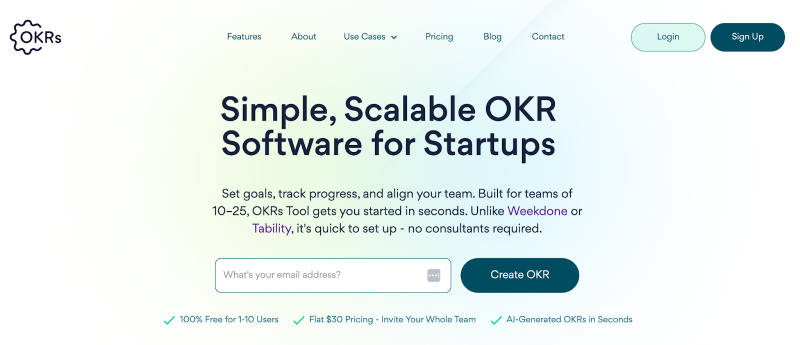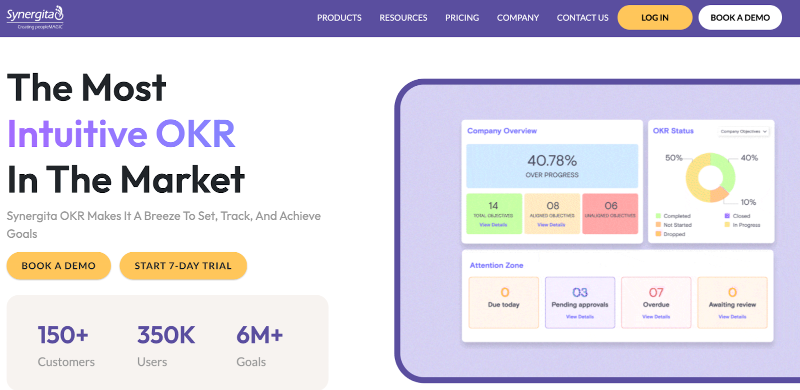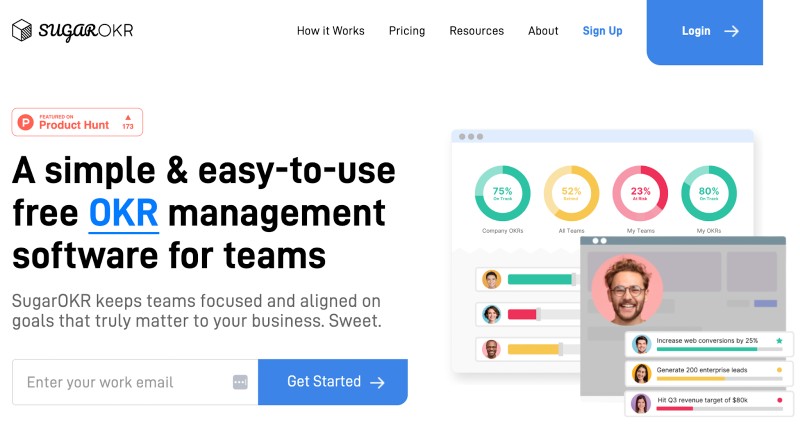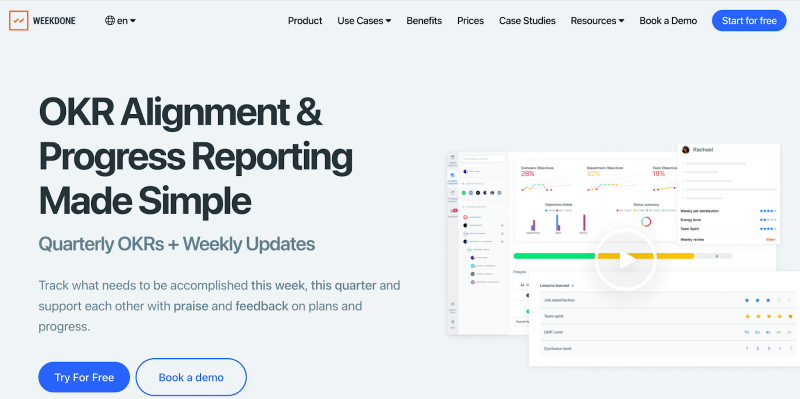The competition for growth is fiercer than ever.
Startups, scale-ups, and even established enterprises are all looking for ways to stay aligned, focused, and productive in fast-changing markets.
That’s why so many teams are turning to the OKR (Objectives and Key Results) framework.
But while OKRs provide structure, the real challenge is tracking them effectively – and that’s where the right software comes in.
The best OKR platforms don’t just record goals; they encourage collaboration, simplify alignment, and provide visibility across every level of the business.
Whether you’re running a lean startup or leading a larger team, these tools can help you scale with clarity. Here are nine of the best OKR software platforms to consider in 2025.
1. OKRs Tool – Fast, Simple, Startup-Friendly

OKRs Tool is built specifically for growing teams that want clarity without complexity. Its clean interface makes it easy to create objectives, assign key results, and run weekly check-ins. The platform integrates with Slack so updates flow naturally into the tools teams already use. Pricing is team-based, making it budget-friendly for startups and small businesses that want to scale OKRs affordably.
Best for: Startups and lean teams that need structure and focus.
2. SimpleOKR – Straightforward and Reliable
As the name suggests, SimpleOKR delivers a simple way to adopt OKRs. You can set objectives, link measurable key results, and track weekly updates without the complexity of larger platforms. It’s an excellent fit for teams that just want to start with OKRs immediately and avoid a steep learning curve. Its straightforward design makes onboarding simple and adoption quick.
Best for: Small teams looking for an easy entry point into OKRs.
3. Synergita – OKRs Plus People Development

Synergita combines OKRs with performance reviews, 360-degree feedback, and engagement surveys. It’s not just about tracking goals – it’s about building culture and accountability at the same time. Startups can align objectives while reinforcing employee development, which is especially valuable as teams grow and roles evolve.
Best for: Teams that want to balance business outcomes with culture and employee growth.
4. Effy – AI-Driven OKRs and Feedback
Effy integrates artificial intelligence into goal tracking and performance management. It automates reminders, nudges feedback, and highlights potential blockers. Teams can set OKRs, run reviews, and collect feedback all in one place. For startups with limited bandwidth, Effy’s automation reduces administrative overhead while keeping everyone aligned.
Best for: Fast-growing teams that want automation and actionable insights.
5. SugarOKR – Lightweight and Free

SugarOKR strips OKRs back to the basics. It’s a simple, free platform that gives small teams clarity without the clutter of advanced dashboards. You can define objectives, connect key results, and track progress without being overwhelmed. This makes it an ideal replacement for spreadsheets while remaining lightweight enough for lean teams.
Best for: Solo founders or early-stage startups looking for a free solution.
6. Tability – OKRs That Build Habits
Tability focuses on turning OKRs into a habit with guided weekly check-ins, confidence ratings, and visual dashboards. The platform ensures objectives aren’t forgotten after they’re set – instead, they become part of the team’s workflow. Templates also help new users learn how to write strong, measurable OKRs.
Best for: Teams new to OKRs that want to build consistent habits.
7. Weekdone – Guided OKR Adoption

Weekdone is both an OKR platform and a learning tool. Alongside tracking, it offers guided templates, coaching prompts, and weekly reporting. The free plan works well for small teams, while paid plans scale as you grow. Weekdone is especially useful for teams new to goal-setting frameworks and looking for structure from day one.
Best for: Small teams building an OKR culture for the first time.
8. Perdoo – Strategy Meets Execution
Perdoo ties together strategy, KPIs, and OKRs in a single platform. Its visual strategy maps show how top-level objectives connect to team goals, ensuring clarity at every level. Even on smaller teams, Perdoo helps highlight the “why” behind each goal. As companies grow, its scalability and advanced reporting make it easy to keep everyone on the same page.
Best for: Startups and scaling businesses that need to link strategy to operations.
9. Google Sheets – The DIY OKR Option
For teams that want to start immediately without adopting new software, Google Sheets is a surprisingly effective option. You can create a simple OKR template, share it across the team, and update progress collaboratively in real time. It doesn’t have built-in reminders or dashboards, but it gives you complete flexibility to customize your workflow. Studies show that most startups (67%) use Sheets as their first step into OKRs before upgrading to a dedicated tool.
Best for: Very early-stage teams that want to test OKRs before committing to software.
Final Thoughts
Choosing the right OKR software in 2025 comes down to your team’s size, culture, and priorities. For lean startups, OKRs Tool and SugarOKR provide the clarity you need without unnecessary complexity. If you want to connect performance and feedback, Effy, Primalogik, or Synergita are strong options.
Meanwhile, Tability and Weekdone are excellent for teams new to OKRs, helping to build habits and reinforce structure. And if your focus is scaling with strategy, Perdoo gives you a powerful way to align big-picture goals with execution.
The most important step isn’t picking the “perfect” tool – it’s getting started. With the right OKR platform, your team can move faster, stay focused, and achieve growth with clarity.


